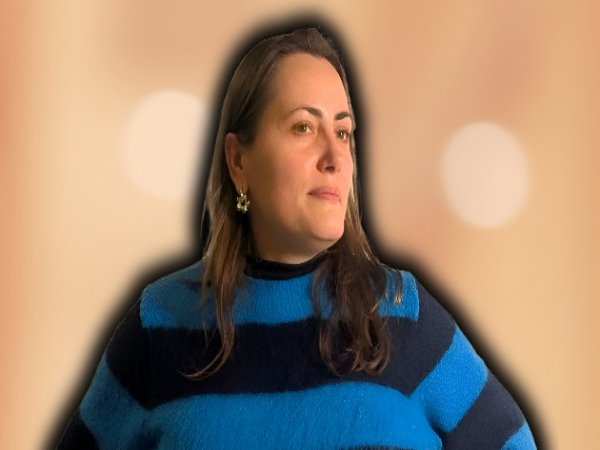Barbara Bargiel: A Bold Voice in Contemporary Cinema
Polish–British Filmmaker Redefining Storytelling with Courage, Vision, and Inclusivity

Barbara Bargiel is a rapidly rising name in both the British and international film scenes. A Polish–British filmmaker based in London, she is celebrated for her genre-bending short films, deeply personal storytelling, and commitment to gender inclusion in the industry. With over twenty years of creative experience and recognition from institutions like BAFTA Connect and Sundance Collab, Bargiel stands out as a filmmaker who blends personal identity with political narratives. Her journey offers inspiration, her works challenge traditional norms, and her impact is reshaping the future of British and European cinema.
Early Life and Background
Barbara Agata Bargiel was born on December 4, 1982, in Rabka-Zdrój, a town in the Lesser Poland region. This makes Barbara Bargiel’s age 42 years old as of 2024. Growing up in Poland, she developed a deep appreciation for art, culture, and storytelling before eventually moving to the United Kingdom.
Her Polish heritage has remained a powerful influence on her identity and creative work. Living in London, she has embraced a multicultural perspective that blends her Eastern European roots with the dynamic British film landscape.
Barbara Bargiel Age
Many people curious about her career also wonder about Barbara Bargiel’s age. Born in 1982, she is now in her early forties. Her age places her among a generation of filmmakers who came of age during the late 20th century, experienced rapid digital innovation in the arts, and now stand at the forefront of new, socially conscious cinema. Bargiel’s maturity, lived experiences, and two decades of creative work give her films a unique authenticity and emotional depth.
Education and Early Artistic Journey
Before establishing herself in film, Bargiel pursued artistic studies that deeply shaped her visual language. She studied photography at the University of East London and scenography at the Royal Central School of Speech and Drama. These disciplines sharpened her eye for composition, light, performance, and space — skills that would later define her filmmaking style.
During the early stages of her career, she was involved in experimental art, performance pieces, photography projects, and immersive theatre productions. This multidisciplinary background allowed her to approach film with a fresh, boundary-pushing perspective, creating works that often sit at the intersection of performance art and narrative cinema.
Entry into Filmmaking
Barbara Bargiel formally began her journey into filmmaking in the 2010s, producing short films and experimental projects that quickly attracted attention on the independent circuit. Her early works showcased a fascination with memory, transformation, and human vulnerability.
Projects such as Poison and Herstory set the tone for her thematic exploration: they were deeply personal, experimental, and layered with social commentary. From the start, Bargiel demonstrated a willingness to break rules and expand the limits of traditional film structures.
Barbara Bargiel Wikipedia
As her name gains recognition, many film enthusiasts search for Barbara Bargiel Wikipedia entries. While she may not yet have a widely developed Wikipedia page, information about her is available across respected film platforms, festival archives, and her professional profiles.
Given her growing influence — being selected as a BAFTA Connect Director and part of the Sundance Collab Directing and Writing programmes — it is only a matter of time before a comprehensive Wikipedia page emerges. Such a profile will likely detail her Polish origins, education, artistic background, filmography, and contributions to inclusive cinema.
Rise in the British and European Film Landscape
Barbara Bargiel’s relocation to London opened doors to one of the most diverse and competitive film industries in the world. She quickly established herself within the independent sector, where filmmakers often rely on resourcefulness, originality, and boldness to succeed.
Her films began circulating at international film festivals, earning recognition for their genre fluidity. Unlike filmmakers who confine themselves to a single style, Bargiel embraces drama, thriller, horror, and comedy elements — often in the same project. This approach reflects her belief that storytelling should not be boxed into rigid categories but should instead reflect the complexity of human experiences.
Filmography Highlights
Poison (2013)
An experimental performance film exploring darkness, loss, and memory. Influenced by Samuel Beckett’s writings, it established Bargiel’s interest in blending performance art with cinematic expression.
Herstory (2014)
A short film that explored women’s stories through fragmented flashbacks and symbolic imagery, giving voice to experiences often overlooked in mainstream narratives.
Martin & The Magic Muffins (2019)
A whimsical project that displayed her versatility, moving away from heavier themes to embrace lighter, playful storytelling.
Coch Gwir – True Red (2020–2021)
A psychological short revolving around obsession, relationships, and the thin line between passion and danger.
Hufen Iâ – Ice Cream (2021)
A tender yet daring short film exploring queer attraction and secrecy. It exemplified Bargiel’s willingness to tackle intimate, identity-driven narratives.
Generic (2022)
Perhaps her most acclaimed short to date, Generic is a drama filled with tension, exploring hostile relationships and psychological conflict. It screened at numerous festivals and earned positive reviews for its visual and emotional impact.
Barbara Bargiel Family
Information about Barbara Bargiel’s family is limited, as she tends to keep her private life away from the spotlight. What is known is that she comes from a working-class background in Poland, and she often highlights how this shaped her worldview and her determination to succeed in the arts.
Her family roots also instilled in her resilience, creativity, and a sense of justice — qualities that have deeply influenced her choice of themes in filmmaking. She has not publicly shared details about parents, siblings, or marital life, preferring to let her professional achievements take the lead in public discourse.
Commitment to Gender Inclusion and Diversity
One of the defining aspects of Barbara Bargiel’s career is her all-female film crews. This commitment is not only a personal statement but also a contribution to the broader fight for equality in an industry long dominated by men.
By centering female talent both behind and in front of the camera, she demonstrates that inclusive filmmaking produces powerful results. Bargiel has also openly identified as neurodivergent and dyslexic, bringing another dimension of representation to her work.
Recognition and Professional Affiliations
Barbara Bargiel’s dedication and originality have not gone unnoticed. Her achievements include:
BAFTA Connect Director (2023–2026) – Recognition from the British Academy of Film and Television Arts.
Sundance Collab (Directing and Writing) – Participation in one of the world’s most prestigious independent film institutions.
National Film & Television School (NFTS) Graduate – Enhanced her skills through advanced professional training.
BFI Skill-Up Mentoring and ScreenSkills Support – Beneficiary of mentoring and bursary programmes for rising filmmakers.
Festival Screenings – Her shorts have been showcased at various international film festivals, garnering praise and awards.
Barbara Bargiel Net Worth
Estimating Barbara Bargiel’s net worth is difficult as independent filmmakers often reinvest much of their earnings into future projects. However, with festival awards, institutional support, and funding from bodies like the BFI and ScreenSkills, her career is gaining financial stability.
As of 2024, her net worth is estimated to be between $500,000 and $1 million, though exact figures are not publicly available. This estimate takes into account her professional grants, project budgets, and recognition within the industry. With her debut feature film in development, her financial standing is expected to grow significantly in the coming years.
Barbara Bargiel’s Style and Themes
What sets Bargiel apart is her genre-fluid style. She does not shy away from mixing horror with drama, or comedy with social critique. Her films often explore themes such as:
Justice and fairness for marginalized voices.
Empowerment of women and unsung heroes.
Intimacy, vulnerability, and personal transformation.
Complexities of human relationships.
Blending of memory, space, and identity.
Her background in photography and scenography gives her a sharp visual aesthetic, while her performance art roots bring raw emotion to her films.
Barbara Bargiel Wikipedia Potential
As mentioned earlier, while a dedicated Barbara Bargiel Wikipedia entry is not yet fully developed, the growing demand for information about her makes it inevitable. Given her ongoing achievements, her page will likely include her birthdate (December 4, 1982), birthplace (Rabka-Zdrój, Poland), education, filmography, and recognition in British and international cinema.
The Road Ahead: Debut Feature Film
Currently, Bargiel is developing her first feature film, supported by BAFTA Connect and other funding bodies. This project is set to mark a turning point in her career, elevating her from a respected short-film creator to a major voice in feature-length cinema.
Her ambition is to explore even broader genres — she has expressed interest in working on Film Noir and Westerns, proving her refusal to be limited by tradition.
Legacy and Lasting Impact
Barbara Bargiel’s career is more than just a personal achievement; it reflects broader changes in the film industry. She symbolizes a generation of filmmakers who are diverse, inclusive, experimental, and socially aware.
Her films are not only artistic creations but also political acts — challenging gender imbalance, amplifying marginalized voices, and pushing against conventional storytelling methods.
As she continues to rise, her name will likely become a fixture in conversations about modern British and European cinema.
Conclusion
Barbara Bargiel’s journey from Rabka-Zdrój, Poland, to London’s independent film circuit is a testament to creativity, perseverance, and vision. At 42 years old, she has already achieved recognition from prestigious bodies like BAFTA and Sundance, yet her best work likely lies ahead with her debut feature film.
Whether people search for Barbara Bargiel age, family, net worth, or Wikipedia, the consistent theme that emerges is her boldness and authenticity. She is not just a filmmaker but a cultural force, embodying the new wave of cinema that is personal, political, and unapologetically bold.



